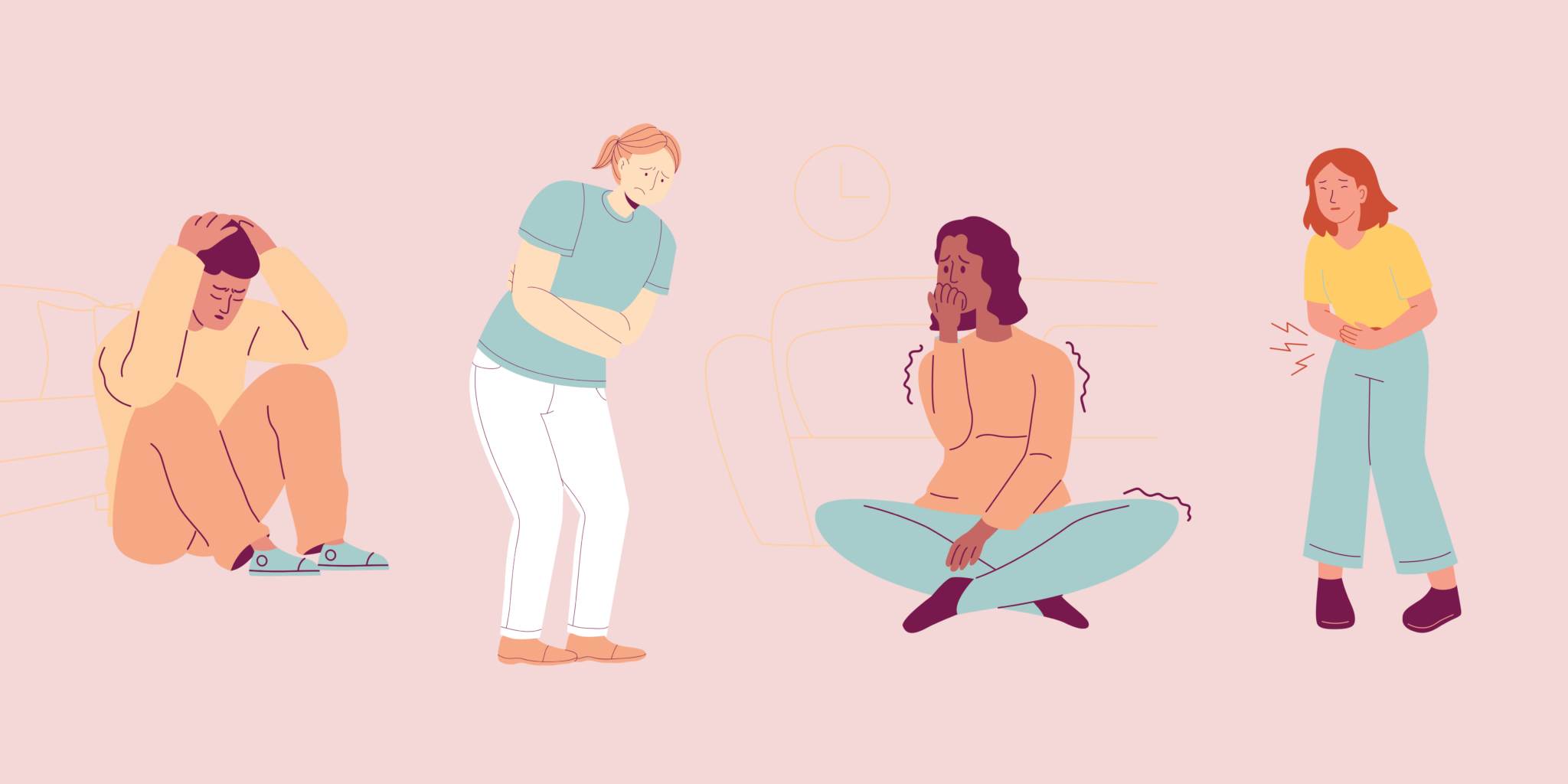
Breathing exercise for IBS
Did you know that breathing can be very natural, but it’s important to breathe correctly? When we stress and get worked up, our breathing becomes shallower and moves up into the chest. By breathing deep down into the belly, our body’s brake is activated, which leads to reduced stress and lower blood pressure. It also helps to optimize digestion.
Correct breathing can reduce bloating.
For those who have problems with bloating, proper breathing is also important as it can help relax muscles, resulting in reduced bloating. Most of us take about 14 breaths per minute, but with the help of yogic breathing and some practice, you can reduce it to as little as one to two breaths per minute. Below you will find a breathing exercise for IBS that you can perform several times a day.
Breathing exercise for IBS - practice
Do the following: Lie on your back. Place one hand on your stomach and one hand on your chest with your fingertips against your collarbone. Breathe in through your nose, expanding your stomach toward the ceiling and out toward the sides. Then continue to expand your ribcage outward and finish the inhalation by filling all the way up to your collarbones. Feel how your entire chest rises and expands. Once you are completely full, exhale in reverse order. First, the collarbones sink, then the chest, the ribs, and finally, the stomach returns in.
Exhale through your nose and ensure that the exhalation is slow and controlled. Then rest for a few seconds, allowing your body to signal when it’s time for the next breath. This way, the breath becomes deep and long. Do you notice your pulse increasing when you lie down and start deep breathing? Your body may not want to lie down and “just” breathe at all. If so, reduce your inhalation. Stop at the ribs and breathe only with your stomach. After some practice, you can then take deeper and deeper breaths.
When should I do breathing exercises for IBS?
The breathing exercise for IBS can be done in the evening before you go to sleep, in the morning when you wake up, or even before you eat to prepare your digestive system. You can also think about taking a few deep breaths now and then during the day, but try to do deep breathing for about 10 minutes so that your body really has time to relax. One tip is to set a breathing reminder on your phone or put a post-it note on your computer.
You’ll find more breathing exercises in the treatment within the Belly Balance app! There you can also find FODMAP lists, a barcode scanner, a gut diary, and much more to help ease and reduce your IBS symptoms. Download the app today and get help to relieve your IBS symptoms!
Good luck!
Sofia Antonsson
Reg. Dietitian, Belly Balance




